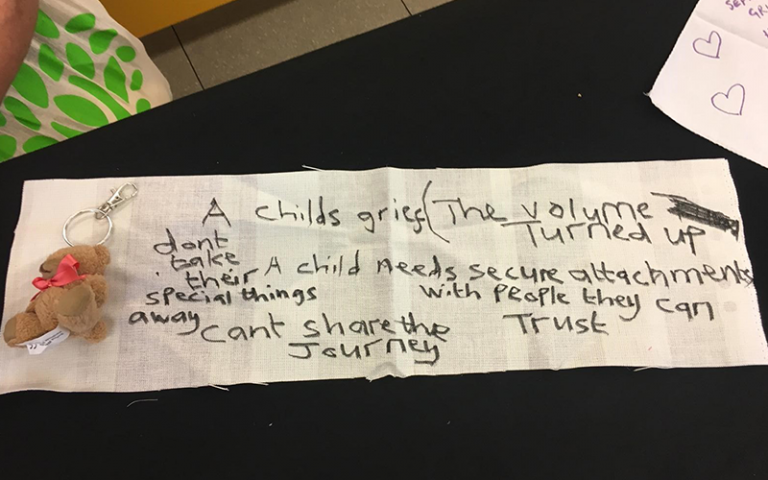Helping people who lived in care as children to understand their past
UCL information researchers are exploring how child social care records are recorded, stored & accessed so they can help to enhance the memories and sense of self of individuals who have been in care.

4 December 2020
An estimated 400,000 adults in Britain have experienced out-of-home care at some stage of their childhood. In 2019, over 75,000 children and young people were in care.
“Many people who grow up in care have gaps in their childhood memories, including unanswered questions such as ‘Why was I taken into care?’ or ‘Where did I live?’,” explains Professor Elizabeth Shepherd (UCL Information Studies).
Each looked-after child has a file where social workers, educators, health professionals and others document details of the individual’s life. Under UK law the care file must be kept for 75 years. For many care leavers, this is the only ‘album’ they have from their childhood, but the records can be difficult to access, heavily ‘redacted’ and rarely include the child’s perspective.
““Our research highlights the vital role care records can play in helping care leavers to get a better understanding of their past, to help them in the present and future.”
Professor Shepherd leads Memory–Identity–Rights in Records–Access (MIRRA), a participatory research project investigating recordkeeping practices in child social care in England and Wales, from multiple perspectives.
The project team includes six co-researchers, who have lived in care themselves, and works in partnership with the Care Leaver’s Association and the charity Family Action. Together they collected interview data from more than 80 people who have lived in care and many social workers and information managers.
“Individuals who have lived in care have often had difficult experiences as children and making the transition into independent adult life can be tough,” says Professor Shepherd. “Our research highlights the vital role care records can play in helping care leavers to get a better understanding of their past, to help them in the present and future.
“We are reframing public policy debates about information rights and recommending changes that will put the experiences of the child at the heart of the file – from what is recorded in the first place, to how records are kept and stored and how decisions are made about access,” she adds.
The MIRRA team has worked with a software company to design a specification for a digital social care recording system that will provide better opportunities for care experienced people to contribute to their own files, by means of a child-centred app.
 Close
Close


